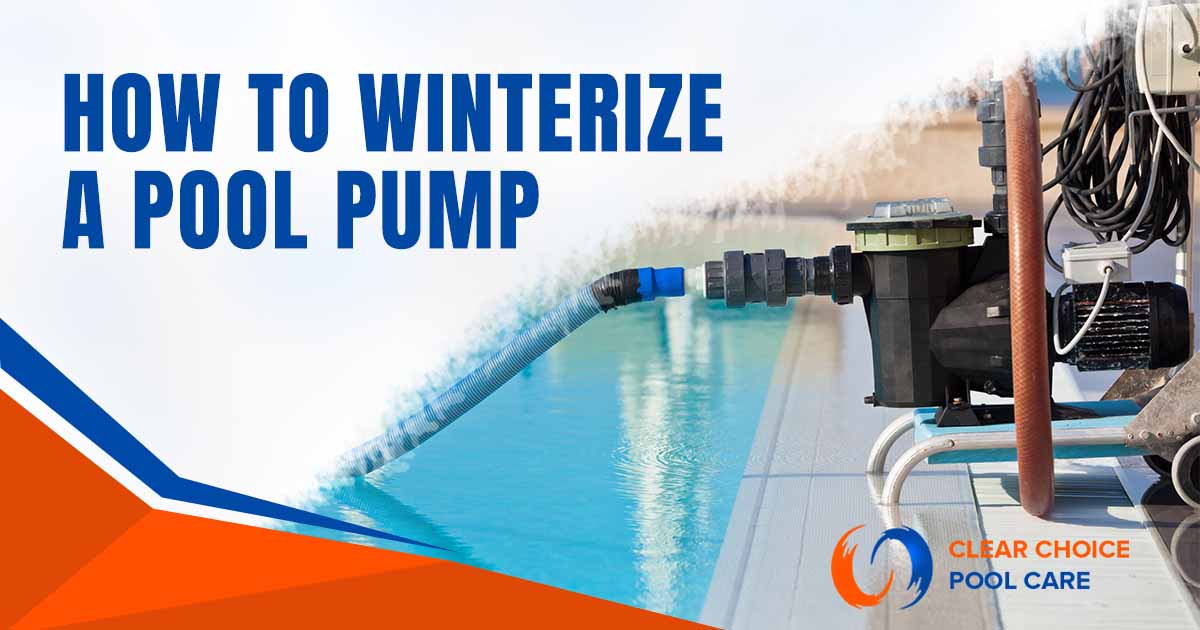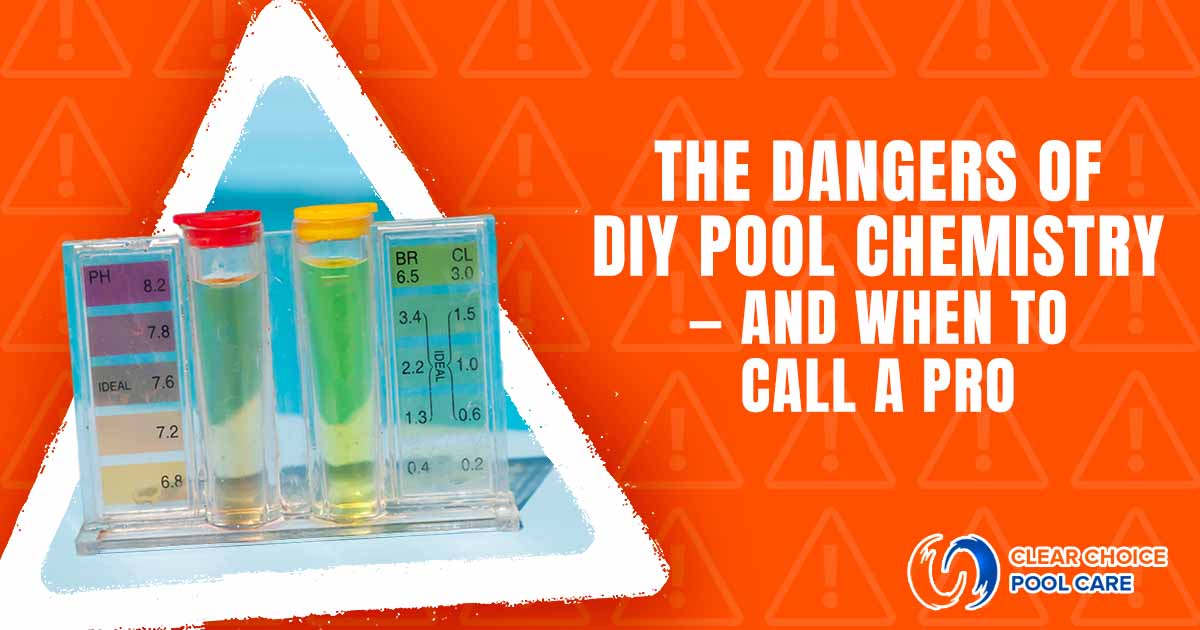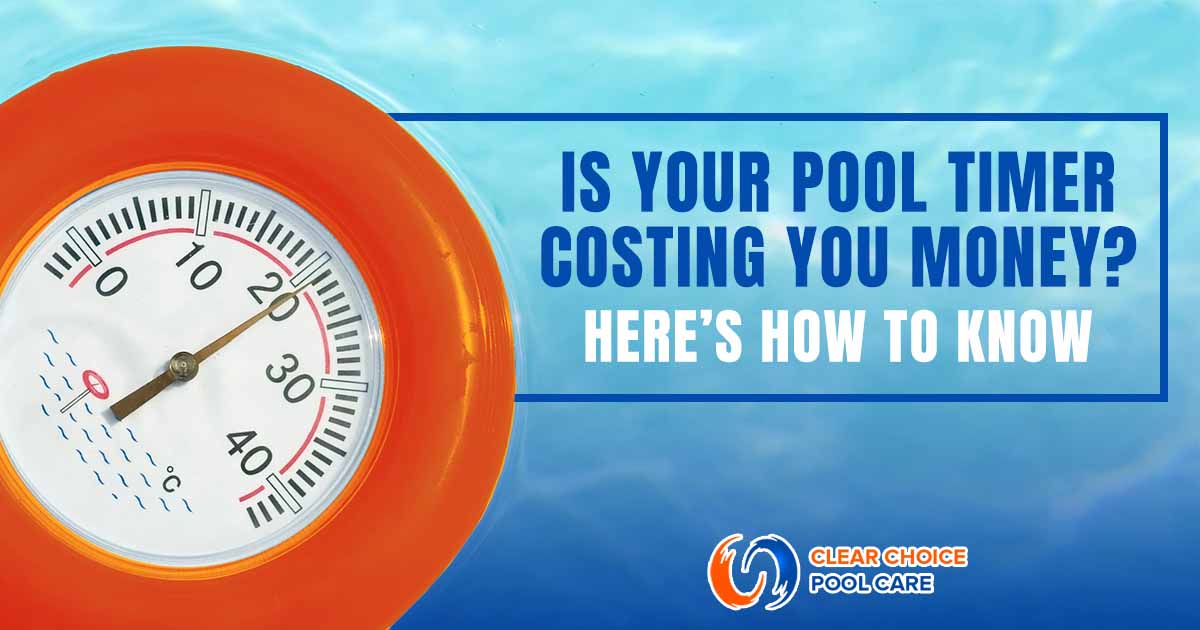Pool owners who want to protect their equipment and ensure the system runs smoothly when the warmer months return must winterize their pool pumps. Properly winterizing your pool pump helps prevent freezing and other damage from harsh winter conditions. By following the correct steps, you can extend the life of your pool pump and avoid costly repairs.
Why Winterizing Your Pool Pump is Important
Winterizing a pool pump is crucial for several reasons. It safeguards your pool equipment against potential damage caused by freezing temperatures. Water inside the pump can freeze during the winter, causing pipes to crack and seals to break. Pool pumps may become unusable without proper winterization, requiring costly repairs or replacements.
Additionally, winterizing your pool pump ensures the equipment remains in good working condition for the next swimming season. It helps avoid the buildup of debris and grime that could affect the pump’s performance when it’s time to reopen the pool. Taking the necessary steps now can save time and money in the long run.
Furthermore, by winterizing your pool pump correctly, you ensure that your system operates efficiently when the weather warms up. A well-maintained pump will perform better and use less energy, giving you peace of mind throughout the year.
When to Winterize Your Pool Pump
Knowing when to winterize your pool pump is crucial for adequate protection. Winterizing too early or too late can leave your equipment vulnerable to damage. The timing largely depends on your area’s climate, but there are a few key indicators to help determine when winterization is necessary.
Understanding the Right Timing for Winterization
Pool owners should winterize their pool pump when the water temperature consistently drops below 60°F (15°C). This temperature is low enough for freezing to become a concern but not so cold that it will cause immediate damage. Pool owners should start winterizing once they notice these cooler temperatures regularly occurring in the fall.
Factors to Consider Based on Climate
The specific timing of winterization can vary based on your location. For those in regions that experience freezing temperatures, the process may need to begin in early to mid-fall. In areas with milder winters, winterization may not be required until late fall or early winter. Keeping track of the weather forecast is essential, as early cold snaps can sometimes catch pool owners off guard.
Winterizing might not be necessary every year if you live in an area with mild winters. However, it’s still a good practice to perform a thorough check before temperatures dip, especially if the pump is left exposed to the elements.
Step-by-Step Guide to Winterizing Your Pool Pump
Winterizing your pool pump involves steps designed to protect your equipment and ensure it’s ready for the next swimming season. The process is straightforward, but each step is essential to prevent damage from freezing temperatures and to maintain the pump‘s longevity.
Turn Off the Power to the Pool Pump
Before starting winterization, ensure the pool pump is entirely powered off. This is crucial for safety and to avoid any damage during maintenance. Turn off the circuit breaker or switch that controls the pool pump and confirm the system is not running. If the pump is still operating, stop it immediately to avoid injury or electrical hazards.
Remove and Clean the Pump Basket
Once the power is off, the pump basket is removed next. The pump basket collects debris from the pool water, such as leaves, dirt, and other particles. Cleaning the basket is essential to prevent mold or mildew growth during the off-season. Use a hose to rinse any remaining debris, and ensure the basket is completely dry before storing it.
Drain Water from the Pool Pump
Draining the water from the pump is one of the most critical steps in winterizing. If water is left inside, it can freeze, causing the pump to crack or break. Open all drain plugs on the pump and allow any water to drain out thoroughly. Drain the filter and any attached plumbing, as these areas can also hold water that may freeze in the winter. A wet/dry vacuum is an effective technique to remove any remaining water in the pump and filter.
Protecting the Pool Pump with Antifreeze
After draining the pump and filter, adding a pool-safe antifreeze solution is a good idea. This helps protect the pump and pipes from freezing damage, especially if you live in an area with harsh winters. Make sure to use only non-toxic, pool-grade antifreeze designed for use in pool plumbing systems. Add the antifreeze to the system according to the manufacturer’s instructions, ensuring the pump and plumbing are adequately protected.
Disconnecting and Storing the Pool Pump (if applicable)
Some pool owners choose to disconnect and store their pool pumps during the winter months for extra protection. If you choose this option, carefully disconnect the pump from the pool’s plumbing system, ensuring all water has been drained. Store the pump in a dry, sheltered location to prevent any exposure to freezing temperatures. If storing the pump isn’t an option, make sure it is adequately covered and protected from snow, ice, or extreme cold.
Common Mistakes to Avoid When Winterizing a Pool Pump
While winterizing a pool pump may seem straightforward, there are several common mistakes that pool owners often make. These errors can lead to damage or reduced efficiency in the long term. By understanding what to avoid, you can ensure the process is done correctly and thoroughly.
Failing to Drain-All Water
One of the most common mistakes when winterizing a pool pump is not draining all the water from the system. Even small amounts of water left in the pump or filter can freeze, causing cracks and permanent damage. It’s essential to check all areas where water might remain, such as the pump, filter, and connecting pipes. Using a wet/dry vacuum to ensure complete drainage is a crucial step that should never be overlooked.
Using the Wrong Type of Antifreeze
Not all antifreeze solutions are suitable for pool equipment. Using automotive antifreeze, for example, can be harmful to your pool’s plumbing and dangerous if it comes into contact with pool water. Always opt for pool-safe antifreeze specifically designed for use in swimming pool systems. It is non-toxic and will not damage the pump or filter components, ensuring your equipment remains intact.
Neglecting Regular Maintenance During the Offseason
Once the pool pump is winterized, it’s easy to forget it until next season. However, regular maintenance during the off-season is vital for preserving the equipment’s condition. Neglecting the pool pump and its components can lead to a buildup of debris, mold, or other issues that can affect its performance when it’s time to reopen the pool. It’s recommended that the pump and plumbing system be checked periodically during the winter months to ensure everything remains in good condition.
Professional Winterization Services for Pool Pumps
While many pool owners can handle winterizing their pool pump on their own, there are times when hiring a professional service is the best option. Professional winterization ensures that all aspects of your pool pump are adequately cared for, offering you peace of mind throughout winter.
Why Hire a Professional for Winterization
Hiring a professional for pool pump winterization can provide several advantages. Professionals have the experience and the proper tools to ensure that the entire system is thoroughly winterized, including areas that may be difficult to access. They can also detect potential issues not immediately apparent to an untrained eye. This proactive approach helps prevent costly pool pump repairs or replacements down the road.
Benefits of Regular Pool Pump Maintenance
Regular maintenance by a professional service can extend the lifespan of your pool pump and prevent unexpected breakdowns. A technician will winterize your equipment and check for wear and tear, clean the system, and replace any damaged parts before they cause problems. This regular attention ensures that your pool pump remains in peak condition year-round, saving you time, effort, and money.
Contact Clear Choice Pool Care for Professional Pool Pump Winterization Services
If you’re unsure about winterizing your pool pump or would prefer to leave it to the experts, Clear Choice Pool Care is here to help. Our professional team can ensure that your pool pump is winterized correctly, protecting your investment and ensuring it’s ready for the next season.





